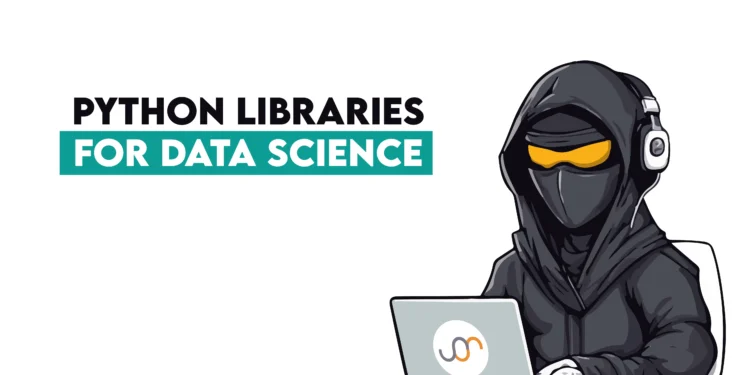Python is one of the most popular programming languages in the data science community, and for good reason. Its flexibility, simplicity, and an extensive ecosystem of libraries make it the go-to choice for data scientists, analysts, and machine learning engineers alike. From data manipulation and visualization to machine learning and deep learning, Python offers a vast array of libraries that simplify complex workflows and make large-scale data processing more accessible.
This article compiles 80+ Python libraries for data science that you should know. These libraries are divided into groups of ten, with each group focused on a specific aspect of data science such as data manipulation, machine learning, or visualization. Each library is paired with a brief explanation to help you understand its purpose and how it can be applied to your projects.
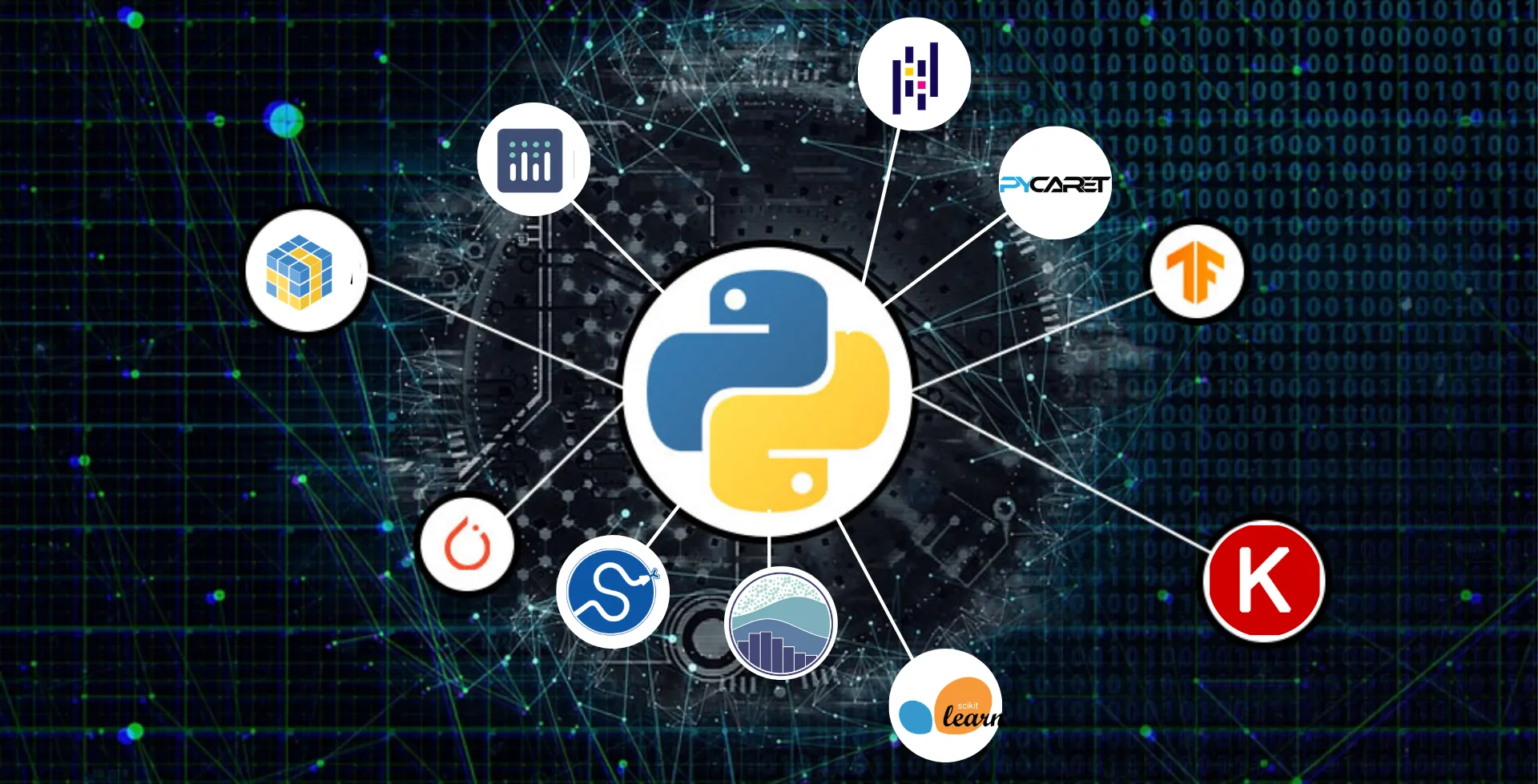
Libraries for Data Manipulation and Analysis
Data manipulation and analysis are essential parts of the data science process. Before diving into visualizations or machine learning models, you need to clean, prepare, and structure your data effectively. The following libraries are designed to help with these tasks, providing robust tools for transforming raw data into a usable format.
- Pandas
The backbone of data manipulation in Python, pandas provides powerful tools for working with structured data. Its DataFrame structure allows you to clean, merge, filter, and reshape datasets efficiently. - NumPy
The foundation of numerical computing in Python, NumPy excels at handling multi-dimensional arrays and matrices. It also includes a variety of mathematical functions to perform operations on these arrays. - Dask
A parallel computing library that extends pandas and NumPy workflows to handle datasets that exceed memory limits. Dask enables scalable data manipulation across multiple CPUs or clusters. - Vaex
Known for its high performance, Vaex is optimized for working with massive datasets, enabling out-of-core data processing and visualization without requiring large amounts of memory. - Pyjanitor
Built on top of pandas, Pyjanitor simplifies data cleaning tasks by adding convenient methods for dealing with messy datasets. - Modin
Modin is a faster version of pandas designed to scale across multiple CPU cores. If you’re dealing with slow pandas operations on large datasets, Modin can be a game-changer. - Polars
A high-performance alternative to pandas, Polars is written in Rust and excels at handling large-scale data analysis tasks. - Datatable
Designed for big data, datatable provides lightning-fast data manipulation and integrates seamlessly with other Python libraries. - Openpyxl
A library for reading and writing Excel files. It’s especially useful for data analysts who work with spreadsheet-based datasets. - Pyarrow
A library for handling columnar data in Apache Arrow format, Pyarrow enables high-performance data sharing across systems.

Libraries for Data Visualization
Data visualization is crucial for understanding data patterns, identifying trends, and communicating insights effectively. Python provides a rich set of libraries that allow you to create everything from simple plots to interactive dashboards.
- Matplotlib
A foundational library for data visualization in Python, Matplotlib provides tools for creating a wide range of static, animated, and interactive plots. - Seaborn
Built on top of Matplotlib, Seaborn simplifies the creation of aesthetically pleasing statistical graphics such as heatmaps, bar plots, and distribution plots. - Plotly
Known for its interactivity, Plotly allows you to create dynamic, web-based visualizations with features like zooming and hovering. - Bokeh
Ideal for creating interactive visualizations, Bokeh is particularly well-suited for web applications and dashboards. - Altair
A declarative library for creating statistical graphics, Altair emphasizes simplicity and works well for exploratory data analysis. - ggplot (Python Port)
Inspired by the R ggplot2 library, ggplot in Python provides a grammar of graphics for creating layered visualizations. - Holoviews
Holoviews makes it easy to explore and visualize complex datasets interactively, requiring minimal coding. - Dash
Built on top of Plotly, Dash is a framework for creating interactive, web-based data visualization dashboards. - Geopandas
Extends pandas to include spatial operations, enabling geospatial visualization and analysis. - Pygal
A lightweight library for generating SVG-based charts, Pygal is perfect for web-friendly, scalable graphics.

Libraries for Machine Learning
Machine learning is at the core of modern data science. Python’s ecosystem includes libraries that cater to everything from building simple regression models to deploying complex neural networks. The following libraries are essential for implementing and fine-tuning machine learning models.
- Scikit-learn
A comprehensive library for classical machine learning, Scikit-learn includes tools for classification, regression, clustering, and model evaluation. - XGBoost
Widely used for its performance and speed, XGBoost is a gradient boosting framework optimized for structured data. - LightGBM
Known for its speed and efficiency, LightGBM excels at handling large datasets with categorical features. - CatBoost
A gradient boosting library that handles categorical variables automatically, making it easy to build complex models. - TensorFlow
Developed by Google, TensorFlow is a versatile library for building deep learning and machine learning models at scale. - Keras
A high-level API built on top of TensorFlow, Keras simplifies the construction and training of neural networks. - PyTorch
A popular deep learning framework, PyTorch is known for its flexibility and ease of use in building and training complex models. - H2O.ai
A scalable, open-source machine learning platform that provides tools for building and deploying machine learning models. - MLlib
Part of Apache Spark, MLlib is designed for distributed machine learning, enabling scalable processing of large datasets. - Fastai
Built on top of PyTorch, Fastai offers tools to simplify the development of deep learning models.
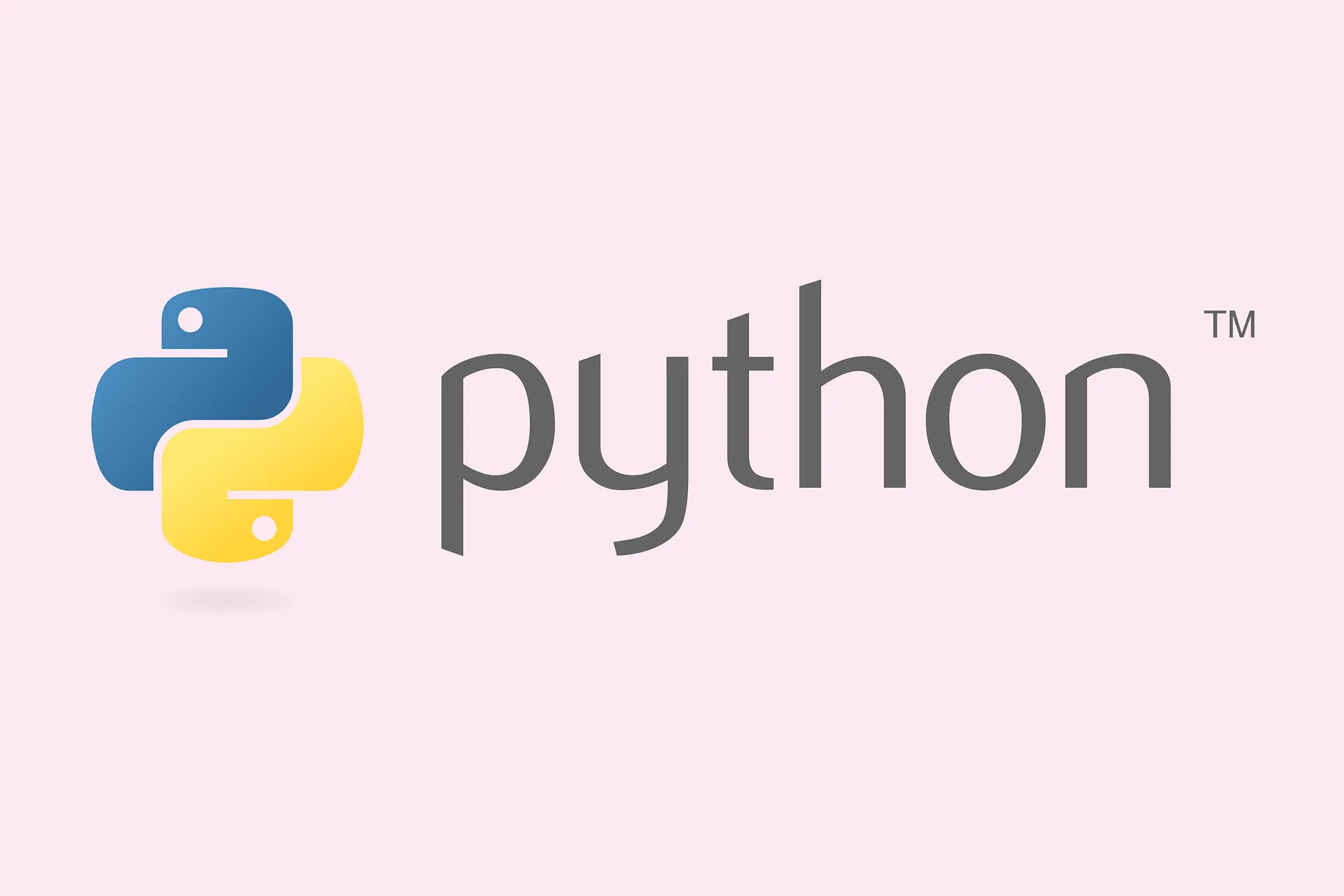
Libraries for Statistical and Scientific Computing
Statistical and scientific computing is an essential part of data science, especially for analyzing complex datasets and performing advanced calculations. Python provides powerful libraries that enable data scientists to conduct robust statistical analyses, simulations, and scientific computations with ease.
- SciPy
A core library for scientific computing, SciPy extends NumPy with modules for optimization, integration, interpolation, and statistical functions. - Statsmodels
Designed for statistical modeling and hypothesis testing, Statsmodels provides tools for building models such as linear regression, time series analysis, and ANOVA. - Pingouin
A statistical package for beginners and experts alike, Pingouin simplifies running common statistical tests like t-tests, ANOVA, and correlation analyses. - SymPy
A symbolic mathematics library, SymPy is ideal for solving algebraic equations, calculus, and other symbolic computations. - PyMC3
A probabilistic programming library that allows for building Bayesian models and conducting advanced statistical inference. - Scikit-time (sktime)
A specialized library for time-series analysis, sktime provides tools for forecasting, classification, and transformation of temporal data. - Pymc-learn
An extension of PyMC3, this library focuses on probabilistic machine learning models for classification and regression tasks. - RAPIDS cuML
A GPU-accelerated machine learning library designed for large-scale data processing and fast statistical analysis. - Linearmodels
A library specifically for econometric models, including panel data analysis, instrumental variable regression, and more. - Nolds
A niche library for nonlinear time series analysis, Nolds calculates fractal dimensions, Lyapunov exponents, and other advanced metrics.
These libraries are indispensable for data scientists working on scientific research, financial analysis, and projects that demand rigorous statistical methodologies.
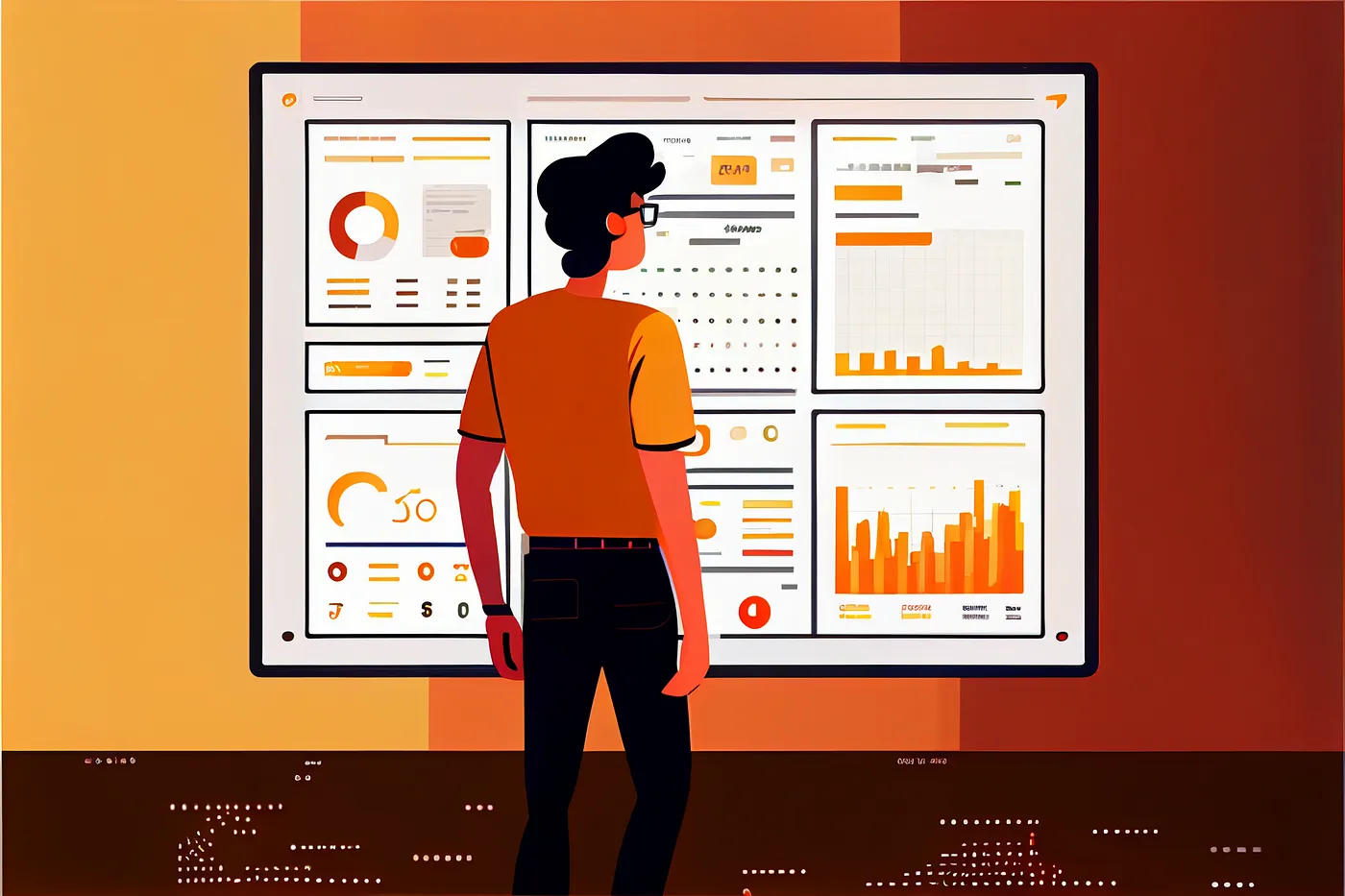
Libraries for Natural Language Processing (NLP)
Natural Language Processing (NLP) enables computers to interpret and manipulate human language, and it’s a rapidly growing field within data science. Python’s NLP libraries are some of the best tools available for text analysis, sentiment detection, and language modeling.
- NLTK (Natural Language Toolkit)
A comprehensive library for NLP, NLTK offers tools for tokenization, stemming, parsing, and sentiment analysis. - spaCy
A fast and efficient NLP library that provides pre-trained models for tasks such as entity recognition, text classification, and dependency parsing. - TextBlob
A beginner-friendly library for text processing tasks like sentiment analysis and noun phrase extraction. - Gensim
Known for topic modeling and document similarity, Gensim provides tools for working with large-scale text datasets. - Transformers by Hugging Face
A cutting-edge library for implementing transformer models like BERT and GPT for advanced NLP tasks. - Flair
A simple NLP library that integrates with other libraries and provides state-of-the-art tools for tasks like part-of-speech tagging and named entity recognition. - Polyglot
A multilingual NLP library that supports tokenization, named entity recognition, and sentiment analysis in multiple languages. - Stanza
Developed by Stanford, Stanza offers tools for tokenization, dependency parsing, and named entity recognition, with a focus on accuracy. - Word2Vec
A popular tool for word embeddings, Word2Vec captures semantic meaning in text data. - FastText
Developed by Facebook, FastText is ideal for text classification and learning word embeddings at scale.
These libraries are essential for data scientists working on chatbots, search engines, language translation, and sentiment analysis projects.

Libraries for Deep Learning
Deep learning has revolutionized fields like computer vision, natural language processing, and robotics. Python offers several robust libraries that enable data scientists to build, train, and deploy deep learning models with ease.
- TensorFlow
A comprehensive framework for deep learning, TensorFlow supports both research and production with tools for building complex neural networks. - Keras
Built on top of TensorFlow, Keras provides a user-friendly API for constructing and training neural networks quickly. - PyTorch
Known for its flexibility and dynamic computation graphs, PyTorch is widely used in academic research and industry. - MXNet
A scalable deep learning library that supports both symbolic and imperative programming paradigms. - Caffe
A deep learning framework optimized for speed, particularly useful for image classification tasks. - Theano
One of the original deep learning libraries, Theano excels at defining, optimizing, and evaluating mathematical expressions. - Torch
The predecessor of PyTorch, Torch is a scientific computing framework with support for machine learning algorithms. - CNTK (Microsoft Cognitive Toolkit)
A deep learning library by Microsoft, CNTK is used for building and training neural networks at scale. - Chainer
A flexible framework for deep learning, Chainer allows for easy prototyping with dynamic computation graphs. - Deeplearning4j
A deep learning framework designed for Java and Scala, but it integrates seamlessly with Python for building models.
These libraries are at the forefront of cutting-edge technologies and are indispensable for projects in AI, computer vision, and NLP.

Libraries for Big Data and Distributed Computing
Big data processing often requires tools that can handle distributed computing and large-scale data management. These Python libraries are tailored for working with massive datasets that go beyond the capabilities of traditional data analysis tools.
- PySpark
The Python API for Apache Spark, PySpark enables large-scale data processing and machine learning on distributed clusters. - Dask
A parallel computing framework that integrates seamlessly with pandas and NumPy, scaling workflows for big data. - Vaex
Handles massive out-of-core datasets with ease, allowing data scientists to manipulate and visualize data faster. - Hadoop Streaming (via Pydoop)
Pydoop allows Python developers to work with Hadoop’s MapReduce framework, making it easier to process large-scale data. - Koalas
A library that bridges the gap between pandas and PySpark, enabling seamless transitions for pandas users working on distributed datasets. - Cassandra Driver for Python
A driver for interfacing with Cassandra databases, ideal for handling large-scale NoSQL data. - RAPIDS cuDF
GPU-accelerated data manipulation and analysis for working with massive datasets on NVIDIA hardware. - Modin
A high-performance library that scales pandas workflows across CPUs or distributed clusters. - BigQuery-Python
A library for querying Google BigQuery datasets directly from Python scripts, simplifying large-scale data analysis. - Apache Drill (via PyDrill)
Enables querying across multiple large-scale data sources using SQL-like syntax, integrated with Python.
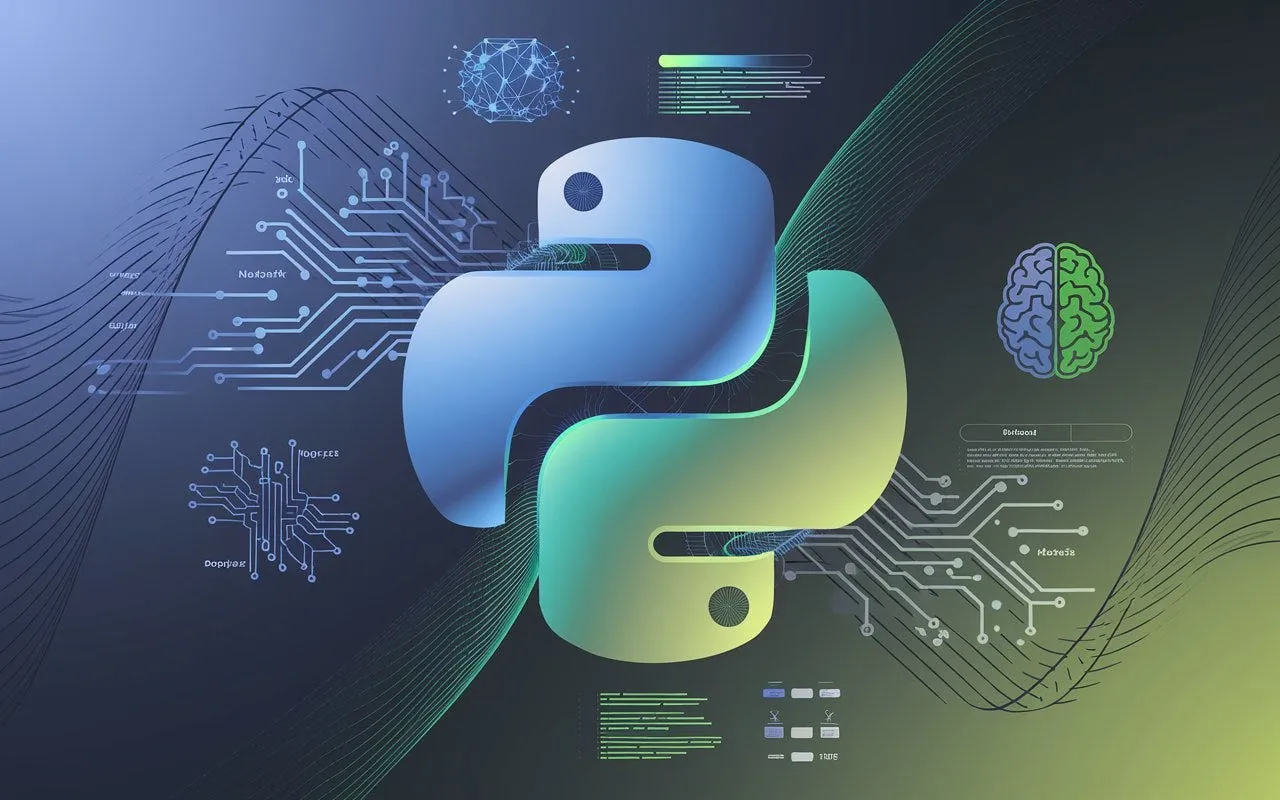
Libraries for Specialized Applications
Data science often involves niche tasks such as geospatial analysis, network analysis, and recommendation systems. Python offers a rich set of libraries tailored to these specialized applications, enabling data scientists to tackle unique challenges with precision and efficiency.
- NetworkX
A library for creating, analyzing, and visualizing complex networks and graphs. It’s widely used in social network analysis and connectivity studies. - Geopandas
Extends the capabilities of pandas by integrating geospatial data, making it easier to perform spatial operations and geospatial analysis. - Shapely
A library for geometric objects, Shapely enables you to perform operations like spatial joins, buffering, and polygon analysis. - Surprise
Specifically designed for building recommendation systems, Surprise helps in implementing collaborative filtering and matrix factorization techniques. - PyCaret
An end-to-end machine learning library, PyCaret simplifies workflows for tasks like classification, regression, and anomaly detection. - MoviePy
A Python library for video editing, MoviePy allows data scientists to process and manipulate video data for visual projects. - Imbalanced-learn
Built on top of scikit-learn, this library provides tools for dealing with imbalanced datasets, such as oversampling and undersampling. - Yellowbrick
A visualization library for machine learning, Yellowbrick provides tools for visualizing feature importance, model performance, and more. - Statsforecast
A specialized library for time series forecasting, Statsforecast provides scalable tools for handling seasonal and non-seasonal data. - SymPy
A symbolic computation library that allows for algebraic equation solving, calculus, and advanced mathematical modeling.
These libraries cater to specialized needs in data science, enabling professionals to work effectively in domains like spatial analysis, graph theory, and recommendation engines.

Libraries for Workflow Automation and Deployment
Automating workflows and deploying data science models are crucial for production-grade applications. These libraries help you streamline repetitive tasks and deploy models efficiently, ensuring a seamless transition from development to production.
- Airflow
A workflow automation tool that schedules and monitors complex data pipelines, making it easy to manage dependencies. - Luigi
Similar to Airflow, Luigi simplifies building and maintaining workflows by organizing tasks into directed acyclic graphs (DAGs). - Prefect
A modern workflow orchestration library that emphasizes simplicity and fault-tolerance in data pipelines. - MLflow
A library for managing the machine learning lifecycle, including experiment tracking, model deployment, and artifact storage. - Streamlit
A popular framework for building interactive web applications directly from Python scripts, often used to deploy machine learning models. - Flask
A lightweight web framework for deploying data science models as RESTful APIs or web applications. - FastAPI
An alternative to Flask, FastAPI is optimized for speed and simplicity, making it ideal for deploying machine learning models. - Docker SDK for Python
Enables containerizing data science applications for easier deployment and scaling. - Kubeflow
A toolkit for running machine learning workflows on Kubernetes, ideal for production environments requiring scalability. - ONNX (Open Neural Network Exchange)
A framework for exporting deep learning models into a standard format that can be deployed across different platforms.
These libraries are essential for automating repetitive processes, deploying models, and managing the end-to-end machine learning lifecycle in production environments.
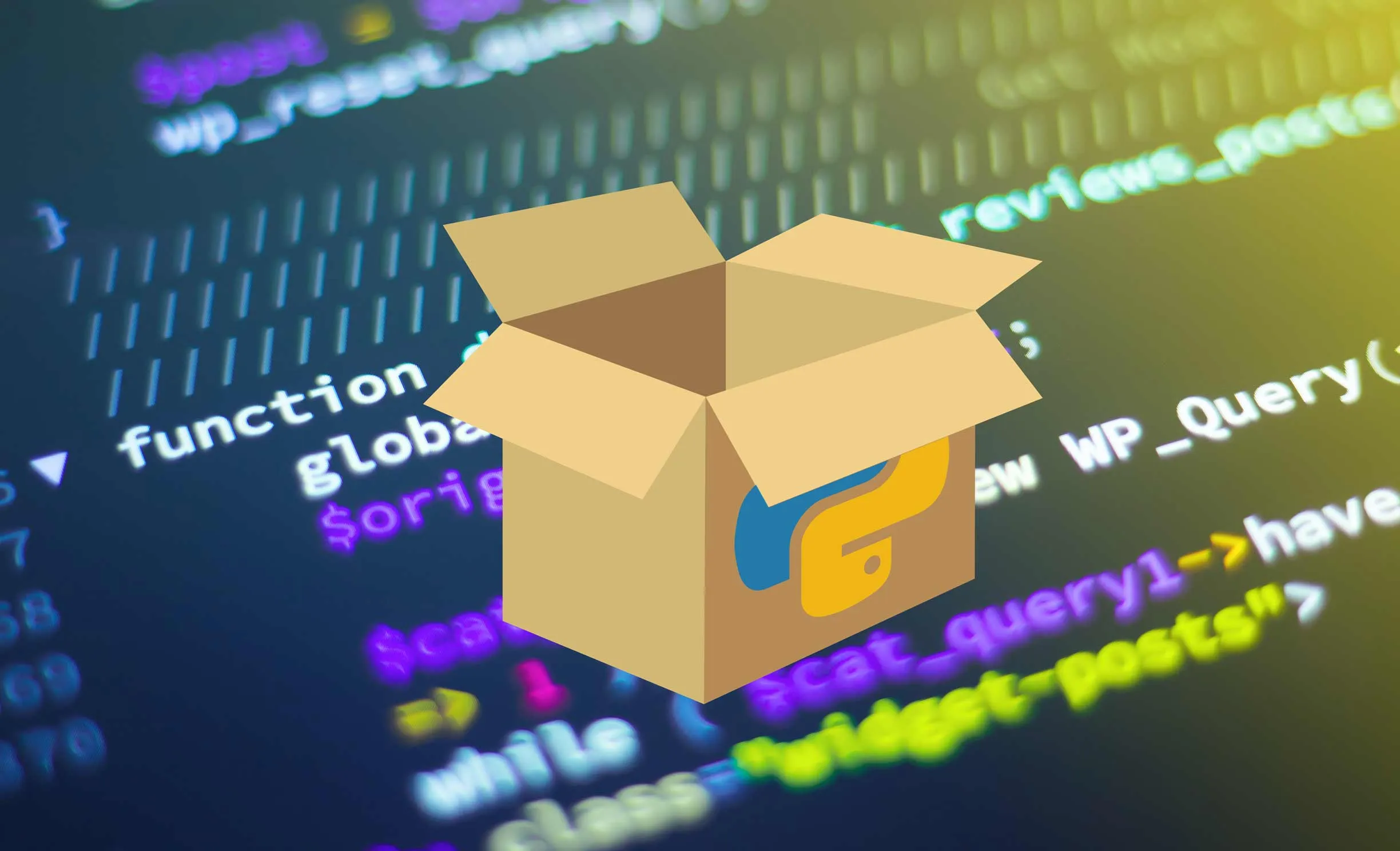
Python’s ecosystem of libraries is one of the main reasons it remains the top choice for data scientists. This comprehensive list of 80+ must-know Python libraries spans every stage of the data science workflow, from data manipulation and visualization to machine learning, deep learning, and deployment.
By leveraging these libraries, data scientists can streamline complex tasks, handle large datasets, and build scalable models with ease. Whether you’re a beginner exploring data analysis tools like pandas or a seasoned professional deploying deep learning models with TensorFlow, there’s a Python library to meet your needs.
Pro Tip: Mastering these libraries doesn’t mean learning them all at once. Focus on the ones most relevant to your current projects and gradually expand your toolkit as you grow in your data science journey.

